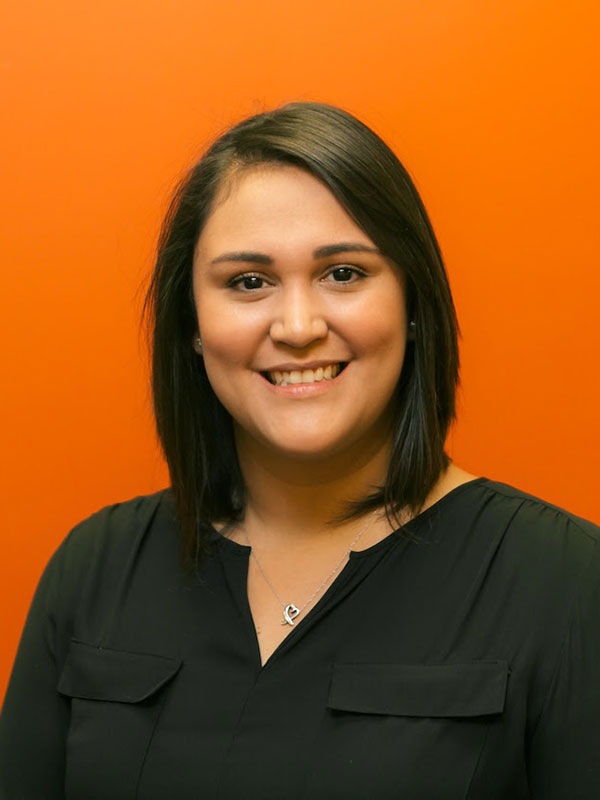How first-gens thrive
I am proud to be a first-generation college graduate, or what Pacific Lutheran University calls “first in the family” — someone whose parents didn’t graduate from four-year, degree-granting institutions in the U.S.
Navigating college can be difficult for any student, but it’s particularly challenging when you or your family might not understand the ins and outs of higher education. For those learning to navigate the language and culture of college, here are five things every current and incoming first-in-the-family student should know. And Gurjot Kang ’21 — a current first-generation student living in the “First in the Family” community in Stuen Hall — shares her perspective on all five.
1. You’re not alone.
Kang shares how to build community: “I think through opening up a greater dialogue and not being afraid to share your experiences as a first-in-the-family (FIF) student, as well as seeking advice from upperclassmen who are also FIF students, is one of the greatest ways in which a community has been built at PLU. Last month, I went on a FIF retreat for our residence hall wing and the most important thing I took away from that is to realize that you’re not alone in any of your experiences and that by supporting other FIF students, everyone benefits from the positive community that is created. Cue cheesy “High School Musical” soundtrack, ‘We’re all in this together….’ Also, shout-out to my FIF resident assistant, Ava — she’s awesome!”
2. Remember to take care of yourself.
Self-care isn’t just about surviving, it’s about self-preservation. To survive is to remain in existence, but preservation is to persist — to maintain your purpose in spite of difficulty and discouragement. As first-in-the-family students, you have made it this far and owe it to yourself, your family and your supporters (sometimes even haters) to do well despite the obstacles. Self-care may include using resources such as the Health and Counseling centers, making time for friends and fun, and simply eating well. If the well-being of you or someone you know is lacking, the Student Care Network is there to back you up. PLU will help you take care of yourself.
Kang on her own self-care: “Self-care would definitely have to do with trying to balance school and extracurriculars. This is something I often struggle with. As a FIF student, I sometimes get into this mentality that every opportunity that I don’t take to get involved in something is a missed opportunity, which leads me to doing a bajillion things at once. But I need to remind myself that I’m only one person and though I might be interested in getting involved in many things, there’s only so much I can do and it’s OK to try new things every year while still pursuing what I’m most passionate about, which is writing, journalism, politics and social justice. Often to relax, I usually watch YouTube, Netflix (favorite TV shows: “The Office,” “New Girl,” “Stranger Things” and “The Fresh Prince of Bel-Air”), nap, or video chat my best friends who are all spread across different colleges. My favorite YouTuber is Lilly Singh. She’s kind, positive and been a great strong female Indian role model in my life since my freshman year of high school.”
3. Your family might not understand, and that’s OK.
Leaving home does not mean leaving your family. Still, it can sometimes be hard to explain to them that you can’t come home because you’re stressed about a paper due on Monday, and all you really want to do is hang out with your new friends. Balancing the two worlds looks different for everyone, but it gets easier to manage over time. And modeling how to keep one foot in each place offers a different perspective, one that others around you can learn from.
Kang discusses her family dynamic: “My parents are really supportive of my academic rigor and have always wanted all their children to take up any opportunities they receive in college. Often with first-generation students, there is a pressure to do majors that have a more direct career path after college. That is what my family wants me to do, as well, so I’m kind of still deciding and figuring out a balance between that but also majoring in something I’m passionate about. I’m really interested in politics and government as well as journalism. I’m currently a political science and communication double major.”
4. Financial aid is confusing.
It’s OK to ask a lot of questions about financial aid. And getting a lot of answers might generate even more questions. It’s important to advocate for yourself — it’s your education and your wallet. Seeking help is nothing to be ashamed of, and help comes from many places: offices across campus such as Student Financial Services, Admission and the Center for Student Success all offer resources to help all students — first-generation and legacy Lutes alike — with the tough questions.
Kang offers advice for navigating finances: “I think the best way to navigate the process is through not being afraid to schedule an appointment with an advisor from the financial aid office if you’re ever confused about something. Also, trying to apply for PLU and outside scholarships is something I try to do whenever possible in my free time. There are also often a lot of major specific scholarships you can apply to. Don’t be afraid to ask your academic advisors about how to apply.”
5. Classes are hard — especially when you don’t know what to expect.
You aren’t in high school anymore. College is a different beast. Classes are harder, approaching professors can be intimidating, and you’re responsible for everything — whether it’s on the syllabus or not. While you may not have your family’s personal experiences to fall back on as a first-gen, many of the people teaching you understand where you’re coming from. Roughly 60 faculty and staff members across campus were first in the family to attend college just like you (look for them proudly wearing their buttons that say so). Speaking up to them about your experience could help ease the fear of the unknown. (And, to be honest, college classes are hard for students whose parents went to college, too.)
Kang embraces classroom challenges: “I think I’ve always pushed myself to try my absolute best. I have this sort of mentality to try to step outside of my comfort zone whenever possible and encourage myself to do things that I might otherwise be afraid to do. I try to remind myself that not everything has to be perfect, sometimes it’s OK if things are just ‘good.’ I think a big part of making my college experience more enjoyable is participating in extracurriculars that I’m really passionate about and keep me excited about what I’m learning in class. Specifically, I’m involved with The Mast, PLU’s student newspaper. I’m always thrilled to write for the paper and usually try to transfer the energy and passion I get from writing for The Mast to my other school work. I think one of the reasons I chose to go to PLU was because I felt like the small classroom environments and ability to connect and communicate with my professors would make my transition from high school to college much less stressful, rather than going somewhere where I would have hundreds of students in each class.”
First in the family community
The “First in the Family” community at PLU is one of many ways the university is fostering a sense of belonging for Lutes who identify as first-generation college students.




